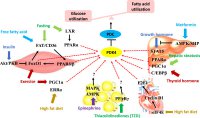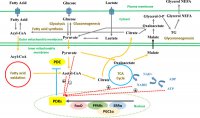Highserotonin90
Member
- Joined
- Mar 24, 2018
- Messages
- 789
I still don't know what defects I have because unfortunately I haven't done a genetic test and a biopsy yet.
I can tell you that since I was born I have had significant neurological problems due to ATP deficiency and physical ... at the moment I am making significant progress with vitamin E, Vitamin C, Vitamin A and Vitamin K2 ... unfortunately I am very confused with the dosage and every 2-3 days I experience a general slowdown in progress.
Is there a risk in blood clotting given the continuous use of E, A, K2?
I have episodes of lactic acidosis which are very disabling in addition to the loss of muscle tone, difficulty in gaining weight (muscle), decrease in muscle strength, mental fog ...
I'm much better off without starches but it's hard to be without
I think my Krebs / glycolysis cycle is too accelerated while the mitochondrial transport chain isn't ... does it make sense to inhibit Krebs with NADH in pure form and increase oxidative phosphorylation in the chain?
What do you think of succinic acid?
Thanks
I can tell you that since I was born I have had significant neurological problems due to ATP deficiency and physical ... at the moment I am making significant progress with vitamin E, Vitamin C, Vitamin A and Vitamin K2 ... unfortunately I am very confused with the dosage and every 2-3 days I experience a general slowdown in progress.
Is there a risk in blood clotting given the continuous use of E, A, K2?
I have episodes of lactic acidosis which are very disabling in addition to the loss of muscle tone, difficulty in gaining weight (muscle), decrease in muscle strength, mental fog ...
I'm much better off without starches but it's hard to be without
I think my Krebs / glycolysis cycle is too accelerated while the mitochondrial transport chain isn't ... does it make sense to inhibit Krebs with NADH in pure form and increase oxidative phosphorylation in the chain?
What do you think of succinic acid?
Thanks



